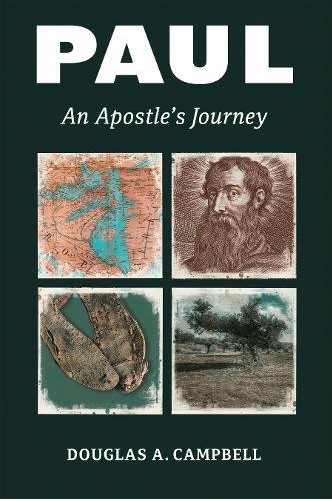NT Wright, in his Paul and the Faithfulness of God, volume 2, opens up with a sketch of his plan, which I will sketch briefly before we get to Wright’s own proposal: Paul’s theology is thoroughly Jewish from top to bottom, and it therefore revolved around three major themes:
Monotheism: God is one and it is the God of Israel.
Election: God formed a covenant with Israel by his own will, a covenant that grabbed this nation among the many and gave to Israel a mission to the world. This election and covenant form the soteriology of Israel’s theology.
Eschatology: again, God has a plan for history to rule this world with Israel having formed a special role.
Paul’s theology though takes these three themes into new territory in reframing each through Jesus and Spirit — thus, a christology and pneumatology give the monotheism, election and eschatology reshaped focus.
Paul’s mission was to engage both Judaism and the Roman Empire with its paganism in forming churches across the Empire.
So now to Wright:
My particular proposal in this Part has a simple outline, unfolding in three stages.
- I take as the framework the three main elements of second-temple Jew- ish ‘theology’, namely monotheism, election and eschatology. I am aware, as I have said before, that second-temple Jews did not characteristically write works of systematic theology… (610). “I am equally aware that many essays in ‘Pauline theology’ have assumed that its central, dominant or even sole theme will be soteriology, and that my proposal may appear to be ignoring this and setting off in a quite different direction. However, as will become clear, I believe that the theme of ‘election’ is the best frame within which to understand Paul’s soteriology, and that ‘election’ in turn is only properly understood within the larger frame of beliefs about the One God and the promised future (and the particular problem of evil which only emerges into full light once the reality of the One God has been glimpsed). Soteriology thus remains at the centre” (611).
- This brings us to the second stage of the hypothesis. I shall argue, in the case of each of these three central and correlated topics, that Paul rethought, reworked and reimagined them around Jesus the Messiah on the one hand and the Spirit on the other (612)….
- The third stage of the hypothesis is to demonstrate that this christologically and pneumatologically redefined complex of monotheism, election and eschatology was directed by Paul in three further ways, which we postpone to Part IV of the present book. I list them here in the reverse order in which they appear in that Part. — First, it was what drove and governed the main aims of his letter-writing…. Second, though, if Paul was indeed redefining the central beliefs of second-temple Judaism, we might expect to find, at least by implication, a running debate between him and others within that world, focussed not least on how they were reading scripture (613)…Third, this christologically and pneumatologically redefined Jewish theology was in reasonably constant engagement, again sometimes explicitly and sometimes not, with the pagan world of Paul’s day.
So he is taking 2 Corinthians 10:5 at Paul’s word: the man was capturing every thought for Christ.
And all of this ends up in a local church, in the ekklesiai of Paul:
The result of all this (again, this will come in chapter 16) was the founding and maintaining of communities which, in terms of the first-century world of Diaspora Judaism, were bound to look extremely anomalous.On the one hand, they would seem very Jewish, indeed ‘conservatively’ so. On the other hand, they would seem very ‘assimilated’, since they did not practice the customs and commandments that marked out Jews from their pagan neighbours. But these communities, Paul believed, possessed their own inner coherence, due to the freshly worked elements in the theology which he expounded, elements that were not bolted onto the outside of the parent Jewish theology as extraneous foreign bodies but were discerned to lie at the very heart of what that theology had most deeply affirmed (614).













